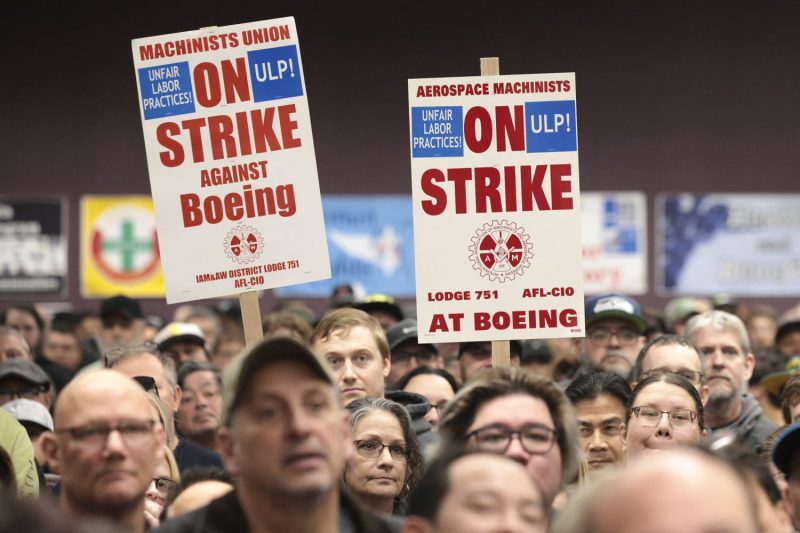
Boeing Machinists Strike Continues as New Labor Contract Rejected
In a recent turn of events, Boeing Machinists voted to reject a new labor contract proposed by the aerospace giant, resulting in an extension of their ongoing strike. The decision marks a critical moment in the relationship between the company and its workers, shedding light on the complexities of labor negotiations and highlighting the challenges faced by employees in the current economic climate.
The rejection of the proposed contract comes after weeks of negotiations between Boeing and the Machinists union, aiming to resolve longstanding issues and improve working conditions for employees. The contract included provisions for wage increases, improved benefits, and job security measures, all of which were designed to address the concerns raised by the union members.
However, despite these apparent benefits, the majority of Machinists voted against the contract, indicating a strong dissatisfaction with the proposed terms. This rejection underscores the deep-seated grievances and frustrations felt by workers, who are grappling with a range of issues including job insecurity, lack of advancement opportunities, and concerns about the future of their industry.
The extension of the strike following the contract rejection sends a powerful message to Boeing management, emphasizing the resolve of the Machinists to secure a fair and equitable agreement. The outcome of this labor dispute will have far-reaching implications, not only for the employees and the company but also for the broader aerospace sector and the labor movement as a whole.
As the strike continues, both sides will need to reassess their positions and find common ground to reach a mutually beneficial resolution. The challenges faced by the aerospace industry, including supply chain disruptions, economic uncertainties, and technological advancements, require a collaborative and innovative approach from all stakeholders to ensure a sustainable future for the industry and its workforce.
In conclusion, the rejection of the proposed labor contract by Boeing Machinists and the subsequent extension of the strike highlight the complexities and challenges of labor negotiations in today’s fast-paced and competitive economy. It is crucial for both the company and the employees to engage in constructive dialogue, prioritize mutual interests, and work towards a fair and sustainable agreement that benefits all parties involved. Only through cooperation and compromise can a resolution be reached that addresses the needs and concerns of the workforce while ensuring the long-term viability of the aerospace industry.
